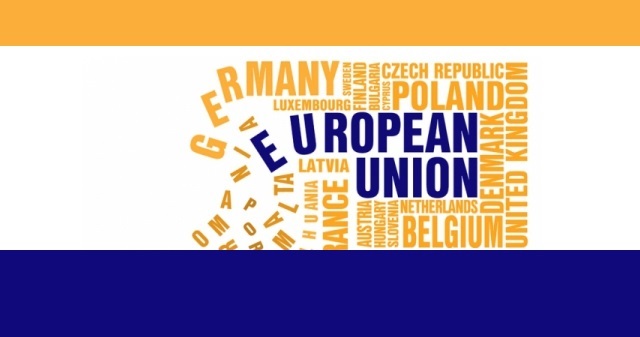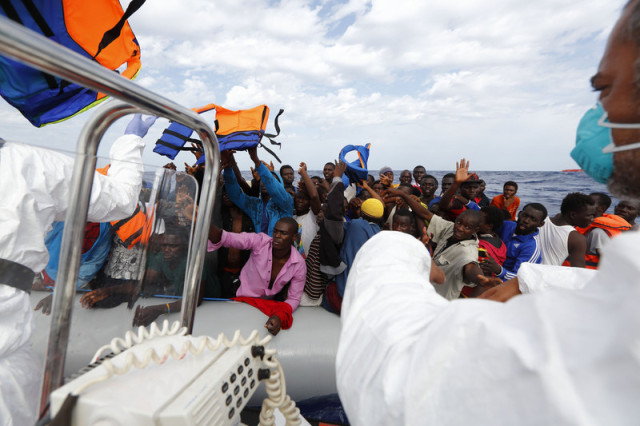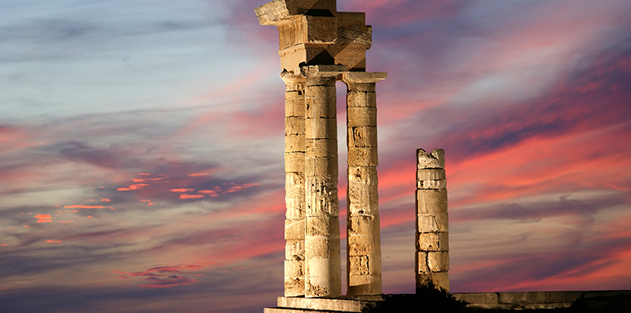Let me try again: They are NOT in danger; they are EXTREMELY dangerous

The process of transformation into Islam begins the moment the first Muslims land in your country, because they will observe at least some of the laws of Islam, in which case, “areas where Muslims reside and there is a remnant of Islam’s rules are considered Muslim lands.”
Natural disasters, earthquakes, volcanic eruptions, tsunamis, cyclones and the like, all tend to bring out the best in us as human beings. If we cannot physically help, we donate money, clothes or blood. If none of these, we at least feel very deeply for the suffering. Governments and emergency services do what they can to prepare, including alert and educate the public and prohibit and punish conduct that can set off or worsen such disasters. When these unwelcome events do occur, we forget our differences, regardless of race, colour or creed …almost.
Consider seasonal wildfires, for instance, generally well-prepared for and attended with high social awareness and appropriate conduct. Every year, despite everyone’s best efforts, people and animals somewhere in Australia, California, the Western Cape and the Mediterranean basin still lose their lives and property, and natural habitats are destroyed. After each such disaster, naturally, lessons are learnt and best practice improved. These lessons include dealing with careless and negligent citizens, thankfully, a manageable minority, and arsonists, usually no more than isolated malicious individuals. It would not cross the civilised person’s mind that they might also have to take account of a substantial minority in their midst that would welcome the infernos and celebrate them; the more fatal the fires, the more extravagant their celebrations. This summer, Greece found herself in just such a situation.
Facing the hottest July in over half a century, the Greek government set up a crisis management unit to deal with the extreme fires that broke out from mid-July, some say from June. In one area alone, Greek City Times reports,
A force of five firefighting aircraft, 85 fire engines, eight teams of firefighters on foot and tens of water trucks from the municipality of Volos, as well as many private water trucks and hundreds of volunteers, took part in the firefighting effort.
As usual, international help was well-represented, and the disaster sometimes claims them, too, as this time, it did two Canadian firefighters. On 25 July, Reuters reports:
A Canadian-built plane fighting wildfires in Greece crashed on Tuesday, as Greek Prime Minister Kyriakos Mitsotakis warned of tough days ahead, with blazes destroying homes and forcing the evacuation of thousands of tourists from the island of Rhodes. Two pilots were killed when their Canadair CL-215 plane crashed on the island of Evia, east of Athens, the air force said. It gave their ages as 34 and 27.”
Two days later, 27 July, we read of Pakistanis in Greece taking to the streets in jubilant celebration. These Muslim invaders (thankfully, no longer called “refugees,” but still erroneously called “migrants,” as if they were there to improve their lives) rejoiced in “Allah’s revenge” upon the Greeks. We saw ummah-wide celebration of “Allah’s revenge” in the early days of the Covid pandemic, when Muslims still boasted that they are protected from the disease. We saw the same ummah-wide celebrations of “Allah’s revenge” when an earthquake struck Italy a few years ago, destroying several churches, the same when a Muslim beheaded French schoolteacher Samuel Pati in the street, and when the Notre Dame in Paris caught fire. The Greeks, it hardly needs stating, were more than a little upset. As always, such Muslim behaviour inspires the ummah everywhere. A Twitter example will suffice.
Balkan Memes asked readers to, “Pray for Rhodes,” one of the worst-affected islands. In response to this tweet, Hamad Ali mocked, “Karma hits back…” and “Good to see that our overseas Pakistani brothers taking revenge from an Islamophobe Nation.” Syed igrar hassan added, “They killed our 300 young brothers… Allah is taking revenge against greeks. More and more pakistanis are migrating to Europe succesfully.”
Appalled, Harry Theocharous tweeted: “Pakistanis celebrating the fires.. ‘Allah is taking revenge on Greeks’. Disgusting!! These people are given shelter after running away from their country.”
We all share Mr Theocharous’s pain and revulsion. Unfortunately, Mr Theocharous and his fellow kindhearted Greeks still think that these poor Pakistanis were in need of shelter and were running away from their country. They, and all so-called Muslim “migrants,” are part of an Islamic invasion of non-Muslim lands that has been going on since the very beginning of Islam. They call it making hijra, that is, invading places that are not Muslim and turning them into Muslim places with Islamic laws and mores. It is what their religion and its holy texts command them to do. The local population, in this case the Greeks, they will wear down, which is what they’re doing now, until their society crumbles and they can take it over. At that point, the Greeks who refuse to become Muslims either are made dhimmis (people whose lives and property are forfeit; not protected people) or are killed. All of this is high Islamic virtue, most pleasing to their Allah.
The problem Greece now faces goes way deeper than a few barbarian Pakistanis and their repulsive celebrations. The process of transformation into Islam begins the moment the first Muslims land in your country, because they will observe at least some of the laws of Islam, in which case, “areas where Muslims reside and there is a remnant of Islam’s rules – even if this is limited to marriages and what pertains to them, for example – are considered Muslim lands.” Therefore, “there is virtually no country on the face of the earth where a Muslim has an excuse to behave differently than he would in an Islamic country.” (See Reliance of the Traveller, Appendix W43.5). By the time the people that the kind Mr Theocharous gave shelter to constructed their first mosque in Greece, the country was already on an inexorable slide into Islam. That slide began when the first Muslim in Greece was allowed to do the first Islamic thing.
It is not a question of whether this or that particular Muslim believes it or not, wants it or not, whether they think their behaviour is good or bad, or how devout or lax they are. There is an unbreakable bond between those who wield the sword and those who do not; between those who invade non-Muslims lands, and those who find themselves already there. According to Qur’an 8:72,
Indeed, those who believed and left their homes and waged jihad with their wealth and their lives for the sake of Allah, and those who took them in and helped them, these people are protecting friends one of another. And those who believed but did not leave their homes, you have no duty to protect them until they leave their homes, but if they seek help from you in the matter of religion, then it is your duty to help, except against a people between whom and you there is a treaty. Allah is the seer of what you do.
This is what makes nonsense of the supposed distinction between “moderate Muslims” and “radical Muslims.” For jihad and hijra to succeed, each needs the other and Islam needs both. They all, wherever in the world they may be, in the past, present or future, play a clearly-defined role integrated with all other roles, whether they are aware of it or not.
Allah has been taking revenge on the Greeks – and on all non-Muslims – for well over a thousand years. For all the shelter that Mr Theocharous thinks he is giving these Muslims, they have nothing to be thankful for, because Mr Theocharous and his fellow Greeks are non-Muslims in a Muslim land. For that Allah will take revenge. Pakistani hijra invaders have been “the best of people” in Greece for years and doing everything to make sure that their intended future dhimmis get used to the idea. It is well past time that the Greeks took revenge on Allah…
Greek City Times reports:
Greece has reportedly cancelled the visas of hundreds of Pakistanis, and those who migrate or work in the Mediterranean country will be subjected to more stringent checks.
Directus quoted Pakistani media as saying: “The Greek embassy in Islamabad has so far cancelled the visas of hundreds of poor Pakistanis. These Pakistanis get Greek visas by paying 2 to 5 million rupees. When a visa is issued from Greece, the Greek Embassy cancels it. A big injustice to those innocent poor who pay money to get a visa first for work. And the Greek embassy in Islamabad cancels visas.”
Please don’t stop there.
Cross-posted with the author’s permission from Murtadd to Human.
AUTHOR
RELATED ARTICLES:
Hamas-linked CAIR applauds as American Bar Association adopts resolution against ‘Islamophobia’
UK: Muslim NHS chaplain praises Taliban’s rule as ‘role model’ and ‘Sharia-based system’
Deported Jihad Mastermind Reveals What the Palestinian Cause is Really All About
Will Princeton Remove An Antisemitic Blood-Libel Text From A Syllabus?
EDITORS NOTE: This Jihad Watch column is republished with permission. ©All rights reserved.

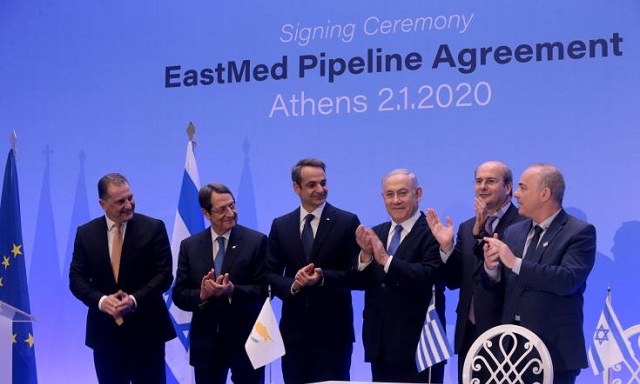



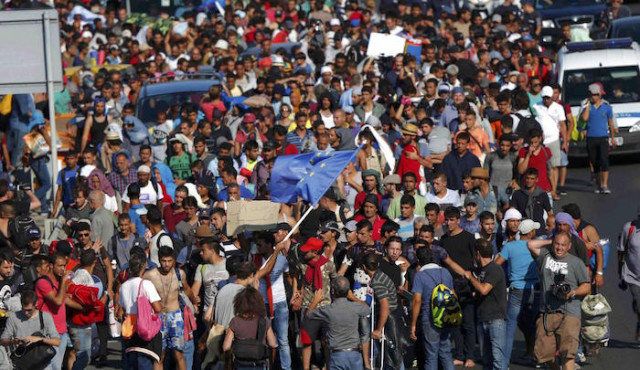

 FROM THE DIRECTOR’S DESK
FROM THE DIRECTOR’S DESK 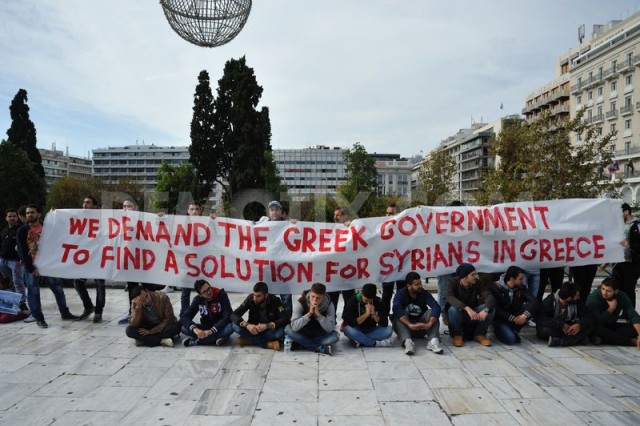


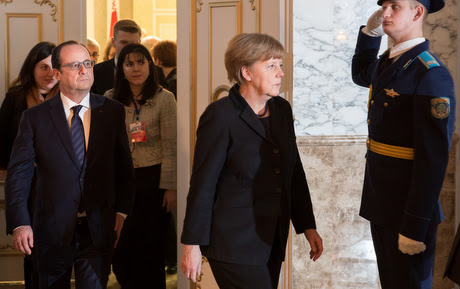

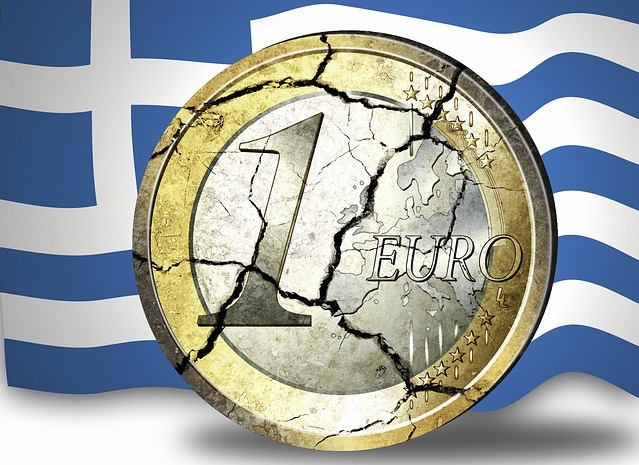


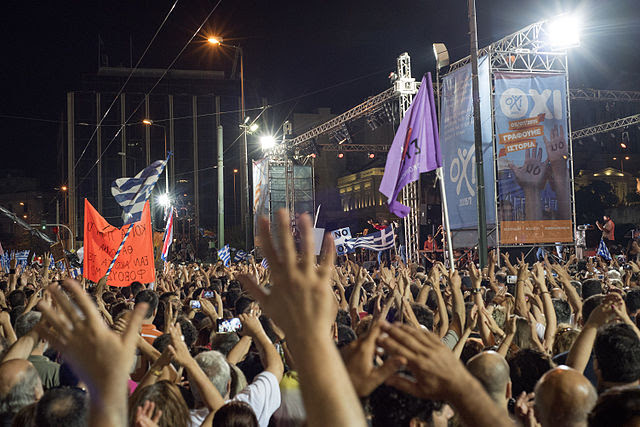
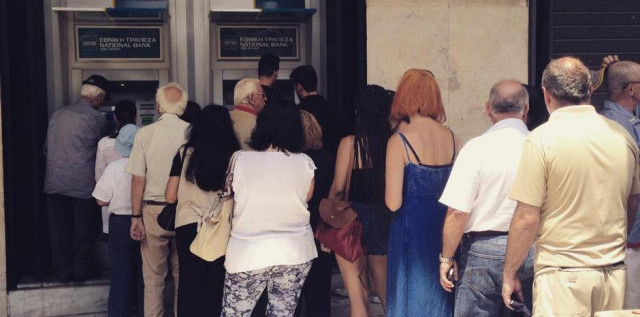
 As a result, Athens has really and truly run out of money, and they will default on their debts starting tomorrow — and the European Central Bank has said
As a result, Athens has really and truly run out of money, and they will default on their debts starting tomorrow — and the European Central Bank has said 

